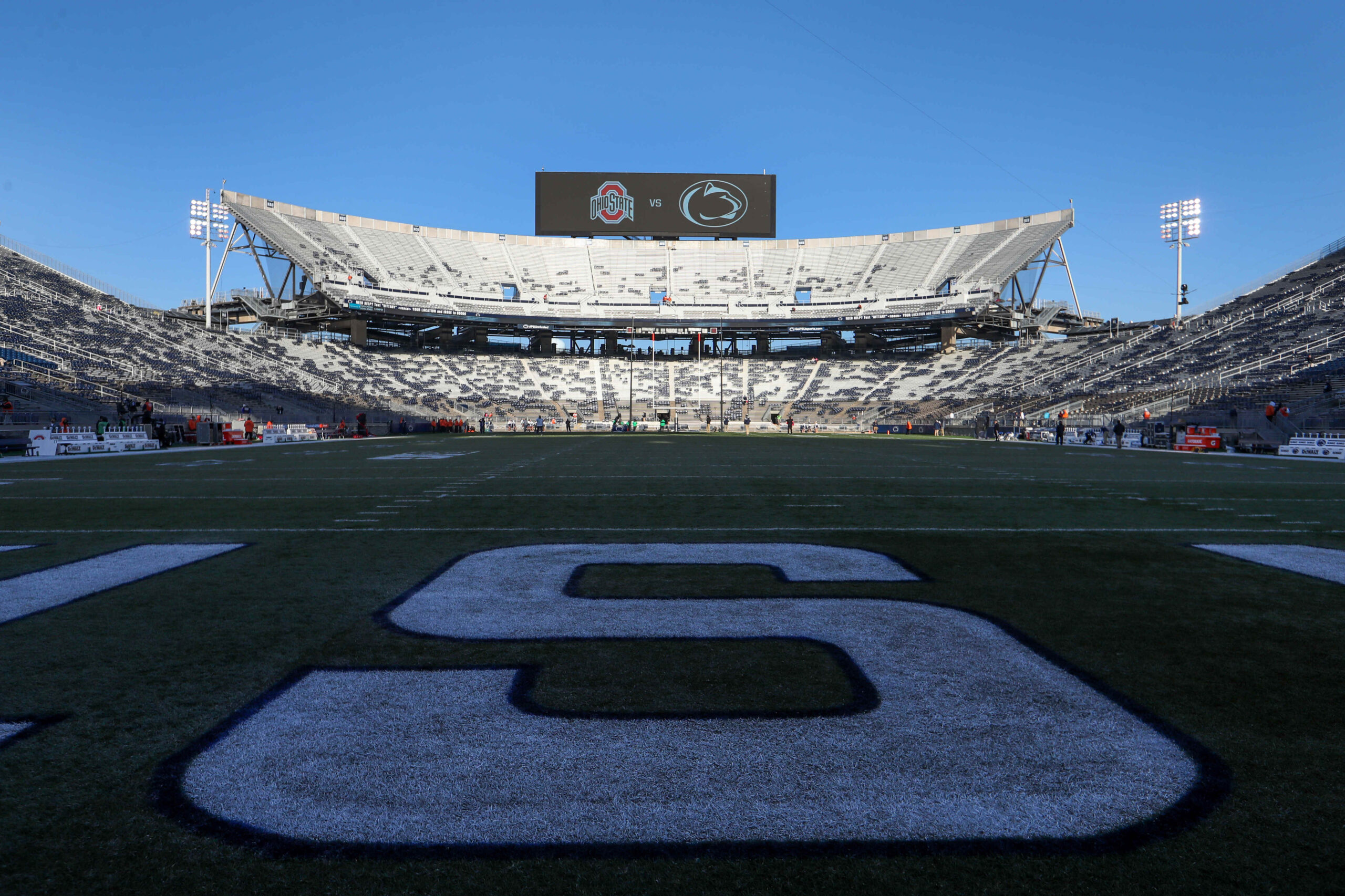STATE COLLEGE, Pa. — After years of speculation and false starts, Penn State is officially moving forward with plans to renovate Beaver Stadium. On Friday, the Penn State Board of Trustees approved $70 million to complete the first phase of the Beaver Stadium renovation, which will mainly focus on maintenance, winterization, and architectural design. With only one opposing vote, the decision is the first step toward the complete renovation of the 63-year home of Penn State football, which is expected to be done by 2027.
What did the Penn State Board of Trustees approve?
The Penn State Board of Trustees approved $70 million for what was described as “priority maintenance projects, winterizing, and architectural and design development.” The vote comes a day after the Board of Trustees Committee on Finance, Business, and Capital Planning signed off on the project. Penn State stated that initial construction will improve safety, security, crowd control, and field lighting. Funding will also be used to insulate the pipes, among other upgrades, to winterize Beaver Stadium. The University noted that this first stage of the Beaver Stadium renovation plan is expected to be completed over the next year.
“After years of studies and careful analysis, I’m happy that these much-needed renovations to Beaver Stadium are about to get underway,” President Neeli Bendapudi said in the statement released by Penn State on Thursday. “I am committed to continuing to grow our Intercollegiate Athletics program and to keeping Penn State competitive on the national stage.”
Dr. Bendapudi went on to say that Penn State is “one of only a handful of self-sustaining intercollegiate athletics departments in the country, which means that this project can move forward, distinctly, without using the University’s overall budget, tuition dollars, student fees or the critical resources available in support of our educational and research missions.”
How will the Beaver Stadium renovations impact the fan experience?
There are several ways in which the Beaver Stadium renovations will impact the overall fan experience on game day. Most notably, portions of this initial funding will go towards winterizing Beaver Stadium before the expanded College Football Playoff in 2024. The higher-seeded teams in the opening round of the expanded CFP will have the option to host the games at their home fields, which will be played on December 20 and 21, 2024. However, Beaver Stadium currently lacks the necessary infrastructure to host a game this late in the year. Winterizing the stadium will also allow Penn State to host other events in the winter, such as the NHL Winter Classic.
Moving forward, the entire renovation project, which is estimated to cost around $700 million, is expected to be finished before the 2027 season. After the renovations are complete, fans can expect improved amenities, such as restrooms, concessions, and stadium Wi-Fi. The upgrades will also improve the overall accessibility of Beaver Stadium, which was moved to its current location in 1960.
However, the upgrades won’t come without some minor inconveniences. The first stage of the renovation, which is anticipated to start in January 2025, will involve a complete reconstruction of Beaver Stadium’s west side. As a result, the stadium will lose capacity for the 2026 season. In a recent interview with Greg Pickel of Blue White Illustrated, Penn State Athletic Director Pat Kraft said that the stadium will lose “minimum seats,” and the goal is to have “a capacity of more than 100,000 seats during the construction.”
Kraft reassured fans Thursday that, even with upgrades, Penn State will keep what has made Beaver Stadium one of the most iconic venues in all of college sports. “We have the most passionate fans in college football, and we are designing the renovation to provide them with an even better experience than the nation-leading game day environment we have now,” Kraft said in Penn State’s statement on Thursday. “Even with the substantial enhancements and new amenities, we will remain true to the traditions of Penn State football and Beaver Stadium.”
Thank you for reading Basic Blues Nation. Please follow us on Facebook and Twitter for the latest news and insights on your favorite Penn State athletics. For feedback, questions, concerns, or to apply for a writing position, please email us at basicbluesnation@gmail.com or direct message us on our social media. It’s due to your support that we can become one of the market’s fastest-growing Penn State sports outlets!

 FOOTBALL3 days ago
FOOTBALL3 days ago
 FOOTBALL3 days ago
FOOTBALL3 days ago
 FOOTBALL2 days ago
FOOTBALL2 days ago
 Katie Schumacher-Cawley2 days ago
Katie Schumacher-Cawley2 days ago
 FOOTBALL13 hours ago
FOOTBALL13 hours ago






